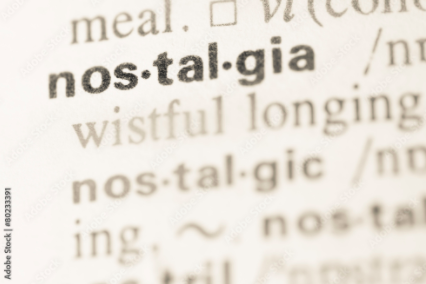By Emma Wu
Nostalgia has a history of being regarded as a disease. Over 300 years ago, Johannes Hofar, a physician, saw soldiers that returned from wars with traumatic memories, suicidal tendencies, and depression. He found out that the memories of the things that happened during the wars were behind these behaviors. He termed this as nostalgia and called it a disease. He derived the term from Greek words, “nostos”, which means homecoming, and “algos”, which means pain.
The term nostalgia has evolved through the years, eventually developing a bittersweet connotation. Nostalgia is defined as a sentimental longing for the past, typically a time of happiness. Recent studies have shown that those that felt lonely or unhappy during the pandemic felt happier when they thought of better, pre-pandemic times. In another study, researchers scored people across three countries on their happiness and loneliness. Loneliness and happiness were clearly linked. Those that felt more loneliness, felt lower happiness. However, what was interesting was that those that were lonely and didn’t reminisce in their older, happier memories felt the least happy. This study’s conclusion revealed indulging in older, happier memories can help one feel happier.
From these studies, the idea of using nostalgia as a therapy for depression was established. By having patients think of better times or times of good relationships with lost loved ones can increase their happiness while decreasing their feelings of loneliness and depression. However, nostalgia therapy would not be for everyone. Those that view relationships as a source of pain would not be affected by this therapy. Nostalgia therapy may even have negative effects on those that delve into past times. However, nostalgia may not necessarily have to be used as a therapy. In general, delving into the past and thinking of better times can have positive health effects on almost everyone. Having nostalgic moments can decrease anxiety, loneliness, and stress while taking one away from the present. In addition, thinking of happy moments can have a positive impact on one’s social future. Those moments that already happened provide some social comfort that one couldn’t experience during these pandemics or times of loneliness.
Nostalgia can be thought of as the antidote for loneliness because loneliness produces unhappiness and nostalgia. These two feelings combat each other, thus thinking of happy memories that have already passed can fight those feelings of loneliness and unhappiness. So, the next time you have a nostalgic moment, don’t fight against it, visit the past and the past can help with the future.

